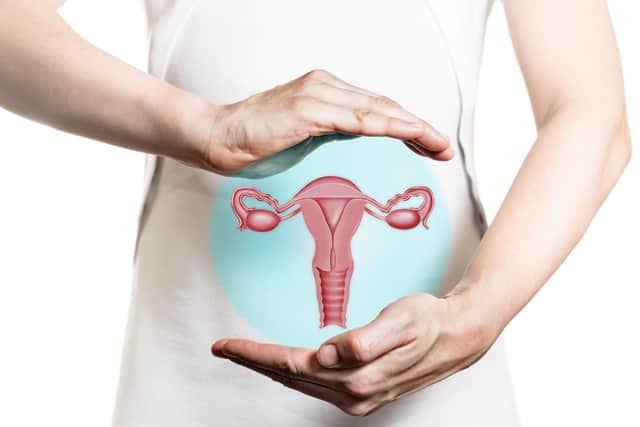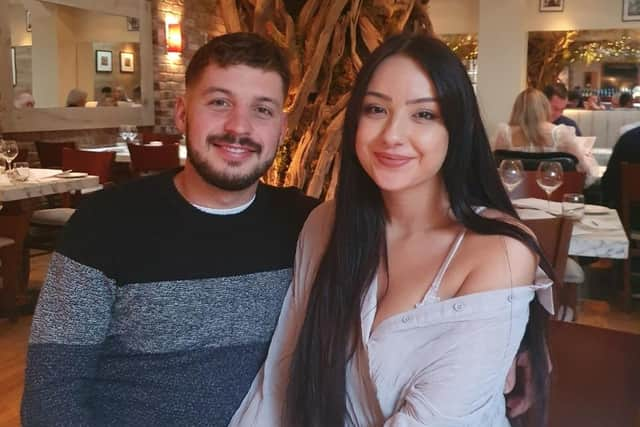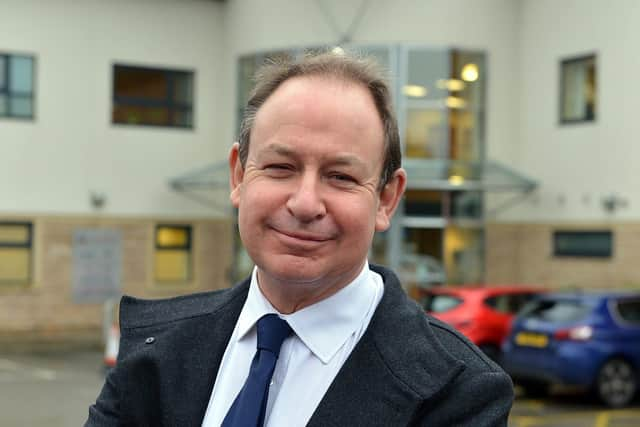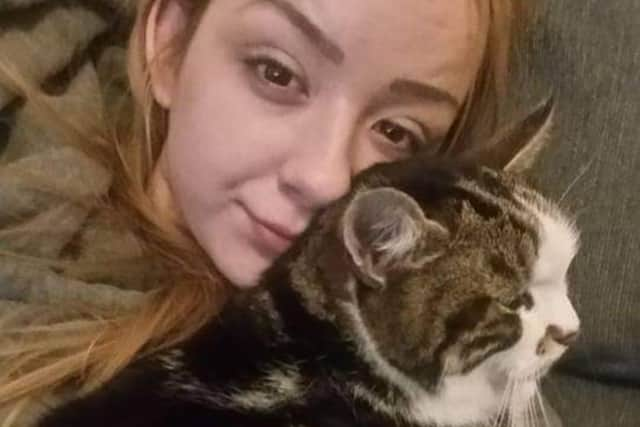High Peak women's health campaigner makes breakthrough with NHS bosses
and live on Freeview channel 276
Maddy Howarth, 26, created the ‘Let’s Change It. Period.’ initiative to ensure that other women get the support she found lacking during a long and painful experience with endometriosis.
The initial response to her lobbying also proved torturous, with NHS Derby and Derbyshire Clinical Commissioning Group (DCCG) saying treatment for such conditions was not “a transformation priority”, and that her care was the responsibility of medics Maddy had been referred to outside of the county.
Advertisement
Hide AdAdvertisement
Hide AdBut after she lodged a formal complaint to DCCG over its handling of her case, Maddy was granted a meeting with medical director Steve Lloyd and the senior manager for planned care.


Maddy said: “After everything I went through, and other women are going through now, it was good to see them actually listen and say this was something they could learn from and turn into a positive in future.
“They were very apologetic. It seemed Dr Lloyd hadn’t seen the patient feedback I’d submitted. He was obviously shocked by some of the things I said.”
She added: “We discussed the approach the NHS overall has towards menstrual health conditions and reforms to how women are referred for treatment. DCCG seems fine on paper but in reality, based on my experiences and what I’ve learnt from my online community, it isn’t fit for purpose at all.
Advertisement
Hide Ad“By the end of the meeting, Dr Lloyd’s opinion on women’s health seemed to have completely shifted, and it was clear that this needed his attention.


Advertisement
Hide AdDr Lloyd said: “We had a very productive and helpful meeting, and it was particularly valuable to be able to talk to Madeleine about her personal experience of a condition which causes severe pain for so many women.
“That experience illustrates the difficulties faced by individuals and the challenges they face in their personal lives. I would like to thank Madeleine for the energy and commitment she has shown in advocating for this important clinical service, and hope we can continue to build an effective relationship that has long-term benefits for our community.”
GPs’ knowledge of menstrual health was top of the meeting’s agenda, along with common clinical approaches which might prioritise preserving a woman’s fertility over her general health and wellbeing.
Advertisement
Hide AdMaddy endured years of exhausting encounters with doctors who she felt were ill equipped to identify and address her condition, even as her symptoms deteriorated to the point where she had to give up her job and home.


When Maddy decided her only escape was a hysterectomy aged 22, she had to overcome medical opinions questioning her ability to make such a choice and was left without proper support.
Advertisement
Hide AdMaddy said: “I explained to Dr Lloyd how it took years to get a diagnosis and, in the end, the hospital had to push my GP to get a referral. I wasn’t offered any mental health support, nor the hormone replacement therapy I should have received before, during and after my operation. He acknowledged that should never have happened.
“The only treatments available for endometriosis and other menstrual conditions are hormonal and these can cause very different side effects from physical pain to depression and suicidal thoughts. This mental health support needs to be offered.”
Advertisement
Hide AdDr Lloyd said: “We have set out to her the steps we are taking to lessen the impact of the condition on patients, particularly by ensuring that actions to improve the endometriosis service are driven by our expert advisory forum on gynaecology.


“The service has a new GP clinical lead, who will focus on women’s health, including endometriosis. She is already looking at how we can improve patient pathways and continue to develop GPs’ understanding of the condition.”
Other parts of the meeting touched on changes which DCCG does not have direct control over, but which it could advocate for at national level.
Advertisement
Hide AdMaddy said: “The NHS doesn’t allow women to freeze their eggs before a hysterectomy if the operation is classed as optional. Mine wasn’t an option, I needed it to improve my health. My condition wasn’t life threatening but it stopped me living.
Advertisement
Hide Ad“Thousands and thousands of women with endometriosis and adenomyosis are in the position where the NHS can’t do anything to stop the disease progressing, but the only other solution is classed as optional.”
There was also discussion about what could be done to update education for teenagers to include common menstrual problems so that problems are identified earlier.
Maddy said: “Where do they go for support or how do they know how the pain they feel needs medical attention if they get a GP who isn’t sympathetic and just puts them on birth control and tells them ‘pain is normal’?”


The senior manager told Maddy: “This point sits with our colleagues in the local authority but as we move to an integrated care system will be exactly the sort of conversation we need to be having so we are taking those early opportunities to educate and support people and prevent issues further down the line.”
Advertisement
Hide AdAdvertisement
Hide AdThe noises coming from the CCG suggest Maddy’s efforts could have real impact, but she plans to continue the campaign until progress is evident.
She said: “It can’t just be a conversation and a promise that things will change. It was positive, but that doesn’t mean I’m going to stop. I need to keep pushing until they’ve got no choice.
“I’d like to see them run an official consultation for women all over Derbyshire. I’m still inviting people to get in touch with me to discuss gynaecological conditions and the support that’s lacking. The more people who come forward, the more they will have to listen.”